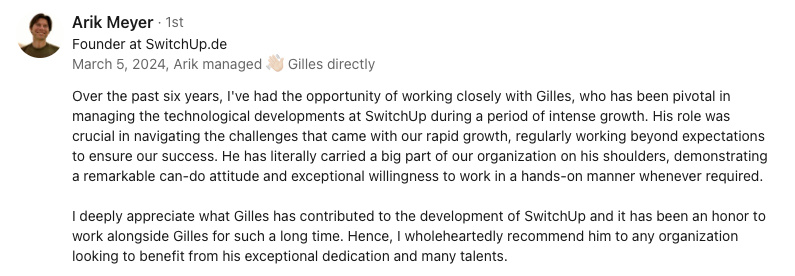Abstract:
The article explores the challenges European startups face in managing data governance amidst stringent regulations like GDPR and resource constraints such as financial strain, limited human resources, and technical expertise. Despite these hurdles, startups can find growth opportunities by integrating privacy into their business models from the start. The piece highlights successful case studies, such as Collibra and Talend, which have leveraged automated and integrated data solutions to enhance compliance, efficiency, and customer satisfaction. It also discusses innovative strategies like using DataOps and decentralized models, as exemplified by companies like Zalando and Spotify, to streamline operations and encourage innovation. Leadership plays a critical role in fostering a data-driven culture through promoting data literacy and accountability. Practical steps for enhancing data governance frameworks include understanding compliance requirements, leveraging technology, and fostering a governance culture. The article concludes by suggesting that embracing trends like AI and data sovereignty laws can further drive innovation and compliance, ultimately allowing startups to turn data governance challenges into successful business strategies.
Startups in Europe are brimming with fresh ideas, but they encounter significant challenges when it comes to managing data. Navigating regulations like startup-success.html">GDPR can feel like a constant uphill battle. Startups need to integrate privacy into their business models from the outset, which can be difficult when resources are limited. Balancing compliance with product development is tricky, yet there are growth opportunities within these challenges. Let's explore the hurdles European startups face and how some are turning them into successes.
Unique Hurdles in Data Governance for European Startups
Handling data governance in Europe is like solving a complex puzzle. Startups face unique challenges due to intricate regulations and limited resources. Here's a closer look at these hurdles, focusing on regulatory demands and resource shortages.
Regulatory Complexities in the EU
startup-success.html">GDPR presents a significant challenge for startups, requiring them to integrate compliance with growth strategies. They must embed data protection into their models from day one. Managing user consent and data rights necessitates advanced systems, which many startups cannot afford to develop. This makes compliance difficult when they want to prioritize launching products. The high cost of compliance often outweighs immediate benefits, complicating decision-making. International data rules add layers of complexity, hindering global expansion.
Resource Constraints in Early-Stage Companies
Early-stage startups face issues due to limited resources, making data governance challenging:
- Financial Strain: Tight budgets make investing in data tools difficult.
- Human Resources: Small teams lack specialists for data governance, leading to gaps.
- Time Constraints: Team members juggle many roles, leaving little time for data governance.
- Technical Expertise: Limited access to IT professionals hampers data solutions.
Despite these challenges, some startups find ways to succeed, as we'll see in the case studies.
Case Studies of Successful Data Governance Implementations
Several European startups have effectively tackled data challenges. Let's examine how companies like Collibra and Talend managed it.
Collibra's Data Governance Success
Collibra, based in Belgium, set a standard with its data governance. They utilize automated solutions to enhance data quality and compliance, not just to meet regulations but to grow their business. This approach has improved their compliance and data quality, demonstrating that careful data governance fuels success.
High user adoption is another win for Collibra. User-friendly tools mean governance is embraced, boosting confidence among clients and employees. This illustrates the power of well-designed solutions.
Talend's Integration Solutions
Talend, a French data integration company, showcases how smart data management can improve operations. Their solutions enhance data accuracy, improving customer satisfaction. By simplifying data processes, they ensure a reliable customer experience, increasing referrals and repeat business.
Efficiency gains from Talend's strategies have improved business performance. Their data solutions streamline workflows and boost productivity, cutting costs and speeding up time-to-market.
Innovative Solutions and Best Practices
European startups are leveraging technology to manage data effectively. Here’s how they do it.
Leveraging Technology and Agile Methods
Startups like Zalando use DataOps to optimize data processes. This method enhances team collaboration and automates data flow, making operations smoother with fewer errors.
Automated governance tools, like those from Collibra, reduce manual work and ensure compliance with startup-success.html">GDPR, freeing teams to focus on innovation.
Decentralized Models for Data Stewardship
Decentralized models transform data stewardship. Spotify's data mesh strategy gives teams control over their data, speeding up operations and encouraging innovation. Teams act as data custodians, which boosts accountability and agility.
Though beneficial, these models can risk data fragmentation. Balancing decentralization with a cohesive governance framework is key.
Leadership and Culture
Building a data-driven culture is challenging but crucial. Leadership plays a significant role in setting this vision and creating an environment where data drives decisions.
Executive Leadership's Role
Strong leadership is vital for successful data governance. Leaders who prioritize data initiatives align them with business goals. This approach fosters data-driven decisions and business growth.
Leaders should promote data literacy by organizing workshops and training to improve data understanding, empowering teams to innovate within a secure framework.
Fostering a Culture of Accountability
Creating a culture of accountability is key for sustainable data governance. Regular feedback and open discussions encourage ownership of data practices, promoting innovation.
Startups can achieve this by:
- Encouraging cross-department collaboration
- Implementing feedback loops
- Recognizing innovative data solutions
- Regularly reviewing compliance protocols
Practical, Scalable Solutions for Data Governance
Building strong data governance is essential for startups in Europe. Here are some practical strategies.
Actionable Steps for Framework Enhancement
- Understand and Implement Compliance Requirements: Learn startup-success.html">GDPR and other regulations, and set clear data policies.
- Leverage Technology for Efficiency: Use affordable tools like Snowflake for data management.
- Foster a Governance Culture: Leaders should support data governance and promote data literacy.
Checklist for Scalable Solutions
- Regulatory Understanding: Keep the team updated on regulations.
- Incremental Improvement: Start small, expand gradually.
- Engagement with Industry Networks: Join industry networks for insights and collaboration.
Future Outlook and Strategic Initiatives
The data governance landscape is evolving. Startups can use these changes to their advantage.
Embracing Future Trends
New data privacy rules and AI integration are changing data management. Startups need to adapt to these trends to innovate and comply with regulations.
Data sovereignty laws add complexity but can drive innovation in localized strategies, enhancing data security and trust.
Strategic Initiatives for Long-Term Success
Startups can use these initiatives:
- Data Marketplaces: Access and share data effectively.
- Ethical Data Use: Build trust through ethical practices.
Interoperability and data sharing foster innovation. By collaborating, startups can reduce costs and improve competitiveness.
Navigating data governance is challenging for European startups, but it offers immense potential. By tackling regulatory and resource challenges, startups can innovate and succeed. Embracing tech like DataOps and decentralized models streamlines operations, while fostering accountability ensures robust data practices. Leadership aligns data initiatives with business growth, balancing compliance with creativity. The examples of Collibra and Talend show that strategic data governance leads to success. What's your approach to data governance? Let's learn and innovate together.
You might be interested by these articles:
- Optimizing Data Governance for Cloud-Native Analytics
- Real-time Data Quality Management
- Enhancing Enterprise Data Strategies





